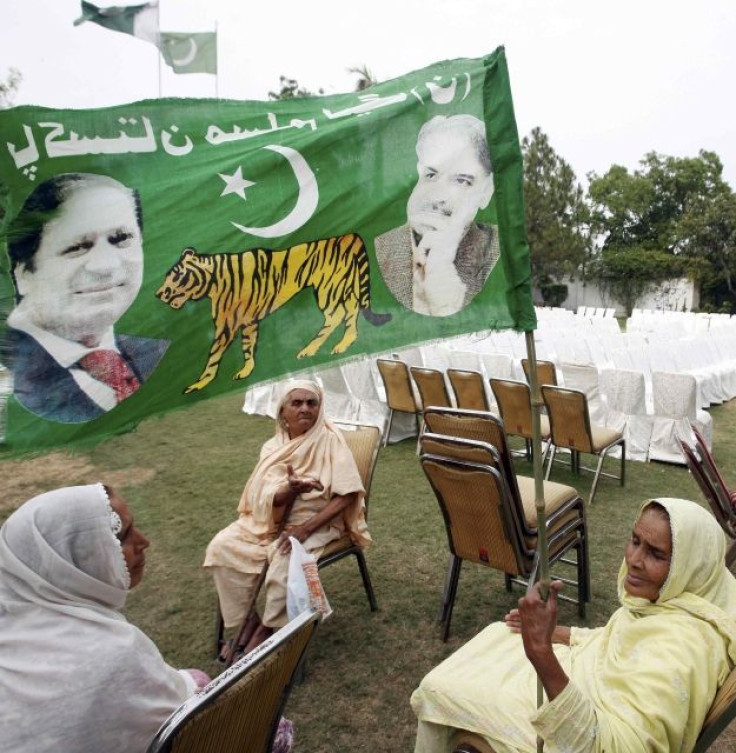Pakistan May Seek IMF Help, But Energy Crisis, Tax Reform More Urgent

Pakistan could be a candidate for a bailout by the International Monetary Fund to avoid a balance of payments crisis, but solving the country's energy crisis and reforming the tax structure could perhaps delay the inevitable.
Pro-business leader Nawaz Sharif, who was officially sworn in as the country's new prime minister on Wednesday, has vowed to fix the ailing economy.
The country's laundry list of problems includes a fiscal meltdown, unpaid loans, unemployment, pervasive corruption, inflation, unprecedented power shortages, extremism and lawlessness in several parts of the country, especially along the country’s borders with Afghanistan and Iran.
"If we manage for six months, then of course we don't have to go" to the IMF, Sartaj Aziz, a key economic adviser to the government, told the Associated Press in May.
However, Adeel Malik, an Oxford University professor and a macroeconomist, told IB Times in an email interview: “The new government will certainly engage with the IMF, but it may not finalize a program in the first four to six months.”
“The energy sector alone is dependent on massive oil imports. But remittances have remained a particularly strong component of foreign capital flows," Malik says.
The government needs to arrest the energy shortfall before addressing its macroeconomic imbalances, he says, because the country imports a majority of its oil and gas needs, putting a huge strain on its foreign exchange reserve.
“The IMF engagement is critical though for sending a positive signal to foreign investors especially in times when Sharif's Pakistan Muslim League-N party [PML-N] is bracing for major infrastructure projects.”
Acute power shortages cripple the country's industries, hurting its progress. However, despite the severity of the problem, Pakistani governments in the past have been reluctant to seek foreign help as that is typically accompanied by demands from lenders that are unpopular within the country.
“Although the IMF programs have stirred internal discontent in the past, it is not necessary that this will always be the case,” Malik says. “It will largely depend on the content of the IMF package; if it places an immediate focus on fiscal reform through privatization of loss-making enterprises that may be resisted.”
“At the same time, any new IMF program will have to broach the critical question of tax reform, including the imposition of value-added tax, or VAT, which could be politically unpalatable for a party that is supported by the constituency of traders,” he says.
In its latest budget proposal, the Pakistan Business Council suggested measures to widen the tax base and for a comprehensive implementation of VAT, saying the formal economy in Pakistan is facing unfair competition from the unorganized sector.
In April, a group of British MPs asked their government to withhold extra aid to Pakistan unless the country reformed its tax structure to enhance its tax base and gather more taxes from its wealthier citizens.
The demand was raised as the UK plans to double its aid to Pakistan from £267 million ($415 million) in 2012-13 to £446 million in 2014-15, the largest aid package from the UK to any country. In comparison, non-military aid from the United States to Pakistan amounts to about $1.5 billion annually.
Pakistan’s tax revenues are lower than the world average and only 0.57 percent of Pakistanis -- 768,000 individuals -- paid income tax last year. In comparable countries, the level was about 15 percent, according to a BBC report.
PML-N has indicated support for imposition of the Agriculture Income Tax, but according to Malik, while it would not be opposed by the public, it “will militate against the interests of the entire political class, represented both in the treasury and the opposition.”
“Urban property tax is the need of the hour, but the Punjab government, which was led by the brother of current prime minister, failed to introduce it in the past five years; seems unlikely that it would be introduced by the central government,” Malik says.
Meanwhile, Pakistan’s key allies such as Saudi Arabia are expected to channel some cash into the country, “but that would just be a stop-gap arrangement,” Malik says. “In the medium term Pakistan would need the IMF loan simply to meet its international obligations, if not for anything else.”
© Copyright IBTimes 2024. All rights reserved.












